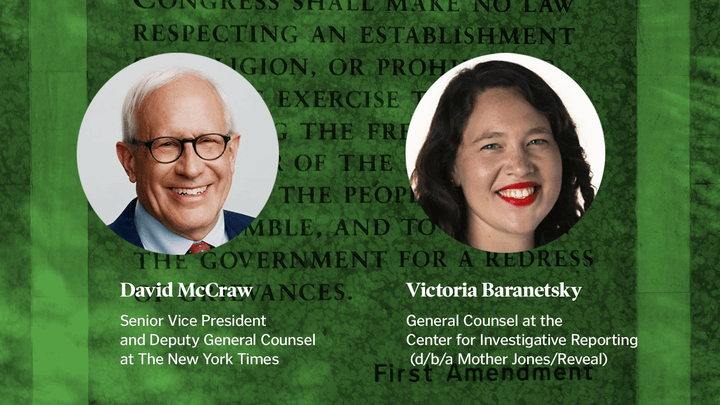
Two days ago, magazine writer Moira Donegan revealed in a first-person account for New York Magazine that she was the original author of the “Shitty Media Men” spreadsheet. It was a pre-emptive strike prompted by concern that Harper’s magazine was about to out her over the controversial list.
Composed in October amid the Harvey Weinstein revelations, the spreadsheet on a Google doc was filled with the names of men accused of everything from sexual harassment to actual sexual assault and was shared with friends. It quickly became viral, and Donegan took it down after only 12 hours online.
But she was too late, and it became a subject of both praise and derision, "with commentators alternately condemning the document as reckless, malicious, or puritanically anti-sex," as she writes.
The contents of the list and the subsequent efforts to find the original author are filled with several ethical questions for journalists. So what can be learned from all of this?
We put the question to Jill Geisler, a former leadership faculty member at the Poynter Institute and the current Bill Plante Chair in Leadership and Media Integrity at Loyola University Chicago. She not only coaches media leaders worldwide but was chief discussion leader at a “Power Shift Summit” at the Newseum earlier this week discussing the issue of sexual harassment.
Here’s our brief email exchange.
After you have read Moira Donegan's account in New York Magazine, what is a lesson/are lessons for journalists — good, bad or indifferent — when it comes to the issues raised by her actions?
The SMM list was all about power and danger — the contributors to the document had the power and the men on the list were in danger. Savor that reversal of status for a moment. Then, as a journalist, keep digging and verifying. Think of an anonymous crowdsourced list as Wikipedia wrapped in razor blades. By all means examine it — but do so carefully or there may be a lot of blood on your hands. That applies to how you cover the content as well as the authors. But expect that there will be more of this kind of raw data coming our way and be prepared to handle it. We now know what a powerful tool for good such data might ultimately be and how much danger it carries if reported without due diligence.
You had some very bright HR people at your summit. By and large, they urge women to share their experiences at the workplace. This is an example of a network of women who did just that. So why do you think people are so angry at Moira Donegan? Clearly, she has at times felt terrified with the backlash and, even now, according to her first-person piece, is very nervous about the response to the piece.
Moira Donegan understood that she faced risks both traditional and contemporary — from the Weinsteinian-variety lawsuits and blackballing to trolls who might dox or swat. Those are very real concerns. I think she also made clear in her first-person account that she realized the scope of what she had unleashed and felt a true responsibility for the good she might create and the collateral damage she might cause.
I think her list — along with the voices of the many experts at this week’s Power Shift Summit at the Newseum — hammered home the inadequacy of systems we took for granted. Reporting to HR didn’t help some victims, especially if HR reported to a complicit CEO. Or if HR hewed only to the letter of the law, rather than the nuanced reality of incivility, which one person at the summit described as the gateway drug for harassment. We learned the inadequacy of anti-harassment trainings that seemed designed to bore the student and protect the company. And we learned that schools may not have properly equipped interns and recent grads for success in their first placement. In addition to pep talks on work ethic and good grooming, we didn’t prepare them for how to respond when the guy they thought was a squeaky clean mentor turned out to be an SMM.






